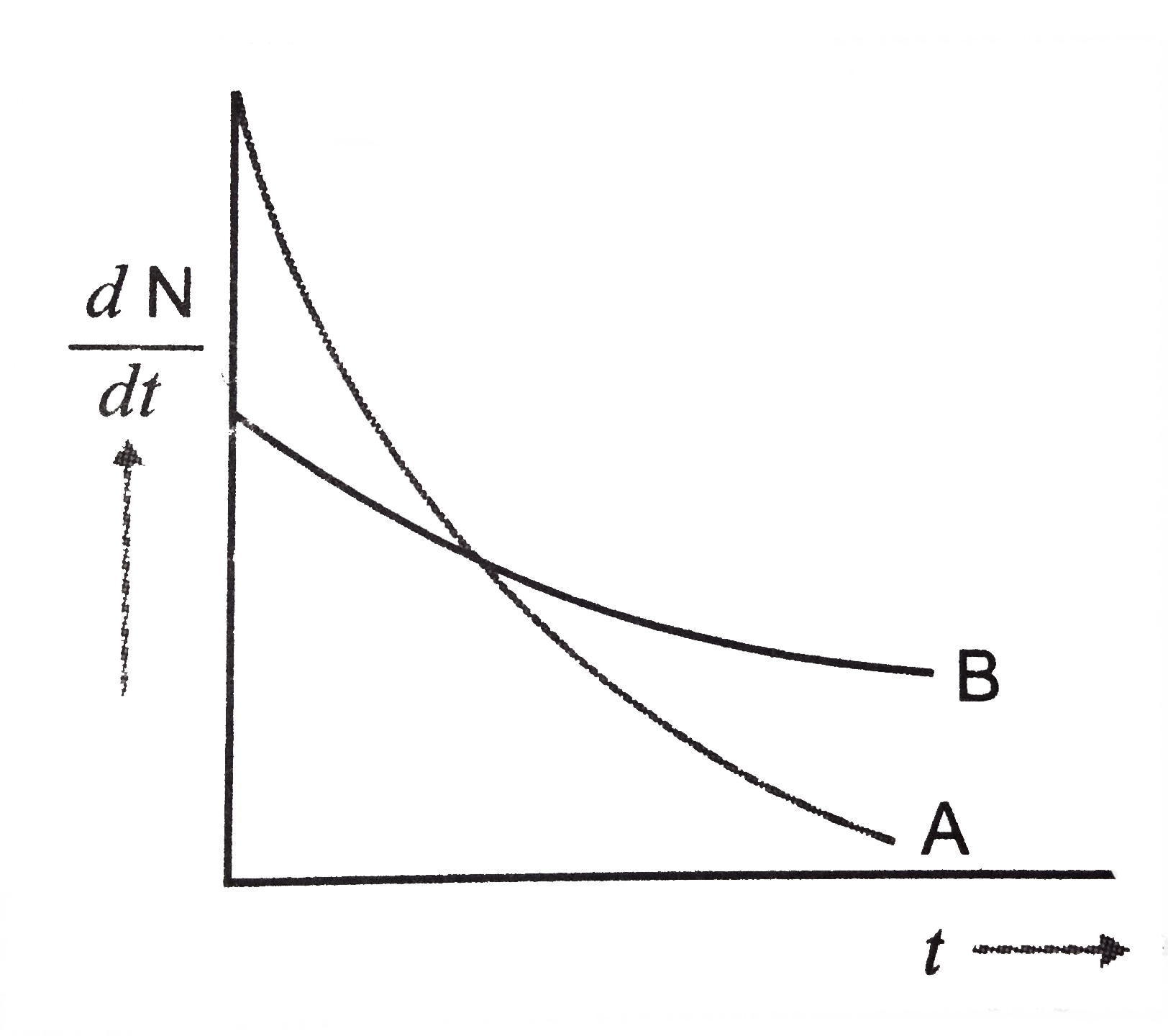Complete Solutions to COMPETITION FILE (NCERT EXEMPLAR PROBLEMS OBJECTIVE QUESTIONS) of chapter NUCLEI of Class 12 book with complete answers and questions
| Class 12 | PHYSICS |
| Chapter | NUCLEI |
| MODERN PUBLICATION | COMPETITION FILE (NCERT EXEMPLAR PROBLEMS OBJECTIVE QUESTIONS) |
| Number Of Questions | 10 |
| Academic Year | 2023-24 |
Suppose we consider a large number of continers each containing initially `10000` atoms of a radioactive material with a half life of `1` year. After `1` year.
View SolutionThe gravitational force between a H-atom and another particle of mass m will be given by Newton's law: `F=G (M.m)/(r^(2)`, where r is in km and
View SolutionWhen a nucleus in an atom undergoes a radioactive decay, the electronic energy levels of the atom.
View Solution`M_(x) and M_(y)` denote the atomic masses of the parent and the daughter nuclei respectively in a radioactive decay. The Q - value for a `beta-` decay is `Q_(1)` and that for a `beta^(+)` decay is `Q_(2)`. If `m_(e)` denotes the mass of an electrons, then which of the following statements is correct?
View SolutionTritium is an isotope of hydrogen whose nucleus triton contains 2 neutrons and 1 proton . Free neutrons decay into `p+bar(e) +bar(n).` If one of the neutrons in Triton decays , it would transform into `He^(3)` nucleus. This does not happen. This is because
View SolutionHeavy stable nuclei have more neutrons than protons. This is because of the fact that
View SolutionIn a nuclear reactor, moderators slow down the neutrons which come out in a fission process. The moderator used have light nuclei. Heavy nuclei will not serve the purpose because
View SolutionFusion processes, like combining two deuterons to form a `He` nucleus are impossible at ordinary temperature and pressure. The reasons for this can be traced to the fact:
View SolutionSample of two radioactive nuclides `A` and `B` are taken. `lambda_(A)` and `lambda_(B)` are the disintergration constants of `A` and `B` respectively. In which of the following cases, the two sample can simultaneously have the same decay rate at any time ?
View SolutionThe variation of decay rate of two radioactive samples A and B with time is shown in fig.

Which of the following statements are true?
View Solution
COMPETITION FILE (NCERT EXEMPLAR PROBLEMS OBJECTIVE QUESTIONS) questions and complete solutions for chapter NUCLEI of MODERN PUBLISHERS PHYSICS (HINGLISH) of Class 12
All Exercises from MODERN PUBLICATION Class 12 PHYSICS NUCLEI
- CHAPTER PRACTICE TEST FOR BOARD EXAMINATION
- COMPETITION FILE (AIPMT/NEET & OTHER STATE BOARDS FOR MEDICAL ENTRANCES )
- COMPETITION FILE (ASSERTION REASON TYPE QUESTIONS)
- COMPETITION FILE (INTEGER TYPE QUESTIONS)
- COMPETITION FILE (JEE ADVANCED FOR IIT ENTRANCES)
- COMPETITION FILE (JEE MAIN & OTHER STATE BOARDS FOR ENGINEERING ENTRANCES)
- COMPETITION FILE (MATCHING TYPE QUESTIONS)
- COMPETITION FILE (MATRIX MATCH TYPE QUESTIONS)
- COMPETITION FILE (MULTIPLE CHOICE QUESTIONS BASED ON A GIVEN PASSAGE/COMPREHENSION)
- COMPETITION FILE (MULTIPLE CHOICE QUESTIONS WITH MORE THAN ONE CORRECT ANSWER)
- COMPETITION FILE (NCERT EXEMPLAR PROBLEMS OBJECTIVE QUESTIONS)
- COMPETITION FILE (OBJECTIVE TYPE QUESTIONS) (MULTIPLE CHOICE QUESTIONS)
- CONCEPTUAL QUESTIONS
- HIGH ORDER THINKING SKILLS & ADVANCED LEVEL
- NCERT FILE SOLVED (NCERT ADDITIONAL EXERCISES)
- NCERT FILE SOLVED (NCERT EXEMPLAR PROBLEMS SUBJECTIVE QUESTIONS (SHORT ANSWER TYPE QUESTIONS))
- NCERT FILE SOLVED (NCERT EXEMPLAR PROBLEMS SUBJECTIVE QUESTIONS) (VERY SHORT ANSWER TYPE QUESTIONS)
- NCERT FILE SOLVED (TEXTBOOK EXERCISES)
- PRACTICE PROBLEMS
- REVISION EXERCISES (ADDITIONAL QUESTIONS CARRYING 1 MARK)
- REVISION EXERCISES (FILL IN THE BLANKS)
- REVISION EXERCISES (LONG ANSWER QUESTIONS)
- REVISION EXERCISES (NUMERICAL PROBLEMS)
- REVISION EXERCISES (SHORT ANSWER QUESTIONS)
- REVISION EXERCISES (VERY SHORT ANSWER QUESTIONS)
- SOLVED EXAMPLES
- TOUGH & TRICKY PROBLEMS